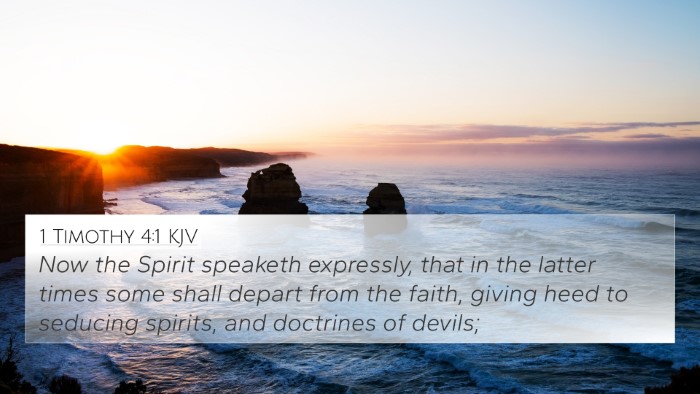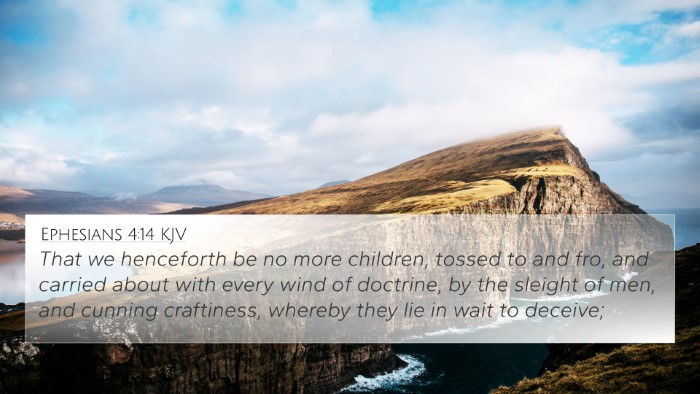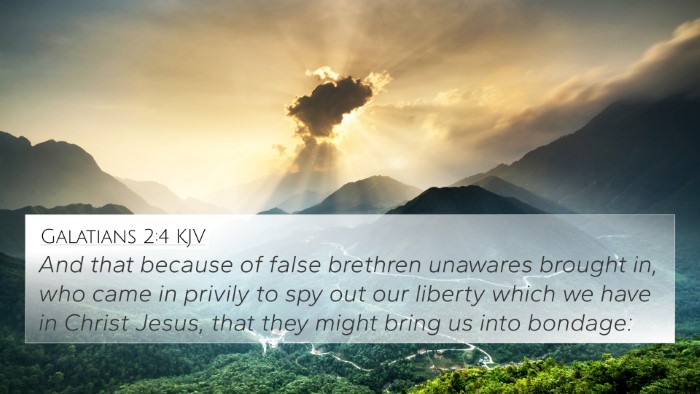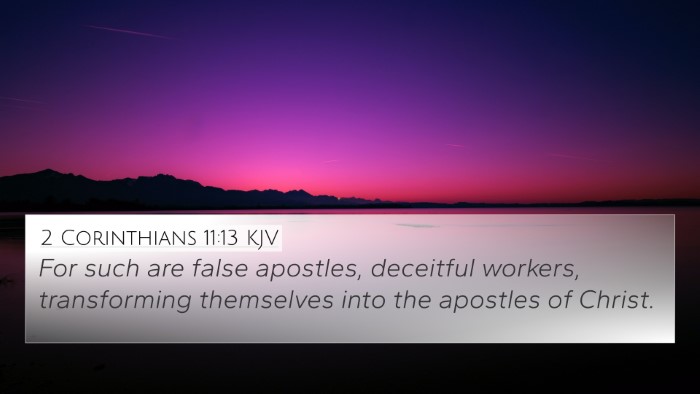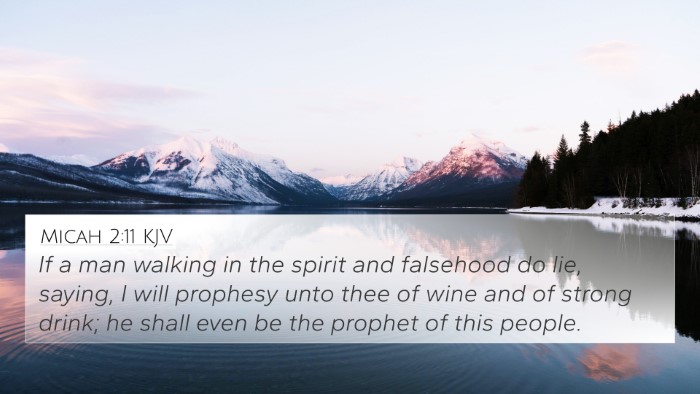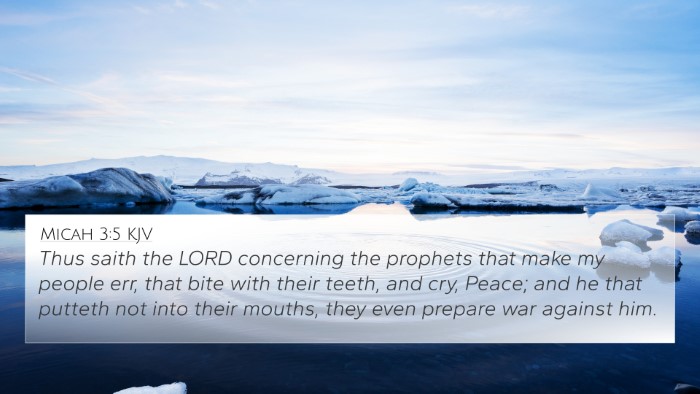Ezekiel 13:4 - Verse Meaning and Interpretation
The verse Ezekiel 13:4 states, "O Israel, your prophets are like foxes in the deserts." This metaphor emphasizes the deceitfulness and cunning nature of the prophets during that time, suggesting that they are not guiding the people correctly. This interpretation is echoed in several public domain commentaries, each providing valuable insights into the text.
Overview of Commentary Insights
The commentaries of Matthew Henry, Albert Barnes, and Adam Clarke shed light on the implications of this verse:
- Matthew Henry: He discusses the role of false prophets, likening them to predators that prey on those who are vulnerable. His perspective indicates a warning against false teachings that arise from selfish desires rather than divine inspiration.
- Albert Barnes: Barnes emphasizes the insignificance of these prophets who fail to fulfill their duty to lead the people towards righteousness. He points out how the imagery of a fox signifies deceit, implying that these prophets mislead and destroy rather than nurture.
- Adam Clarke: Clarke provides a detailed analysis of the cultural context, explaining the behavior of foxes in the wilderness and how it parallels the actions of the false prophets in misleading the people of Israel.
Comparative Bible Verse Analysis
This verse can be linked to several other scripture passages that further illustrate its themes, particularly relating to false prophets and the need for true guidance:
- Jeremiah 14:14: This verse mentions the false prophets who prophesy deceitfully and are not sent by God.
- Matthew 7:15: Jesus warns against false prophets who come in sheep's clothing but are inwardly ravenous wolves.
- 2 Peter 2:1: Peter discusses how false prophets arise among the people, bringing destructive heresies.
- Ezekiel 22:25: Here, similar imagery is used, condemning prophets who have prophesied lies.
- Isaiah 9:16: This states that the leaders of the people cause them to err and lead them astray.
- Micah 3:5: Micah condemns those who prophesy for money, reflecting their corrupt motives.
- Acts 20:29-30: Paul warns the elders of the church that false teachers will arise from among them, distorting the truth.
Thematic Bible Verse Connections
The themes presented in Ezekiel 13:4 resonate with broad biblical principles regarding prophetic integrity and divine truth. By examining the connections between these scriptures, one can gain a deeper understanding of God’s expectations for His prophets and the consequences of misrepresentation.
Tools for Bible Cross-Referencing
To explore these connections more thoroughly, users can utilize various tools and methods for Bible cross-referencing:
- Using a Bible concordance allows you to look up key terms and find related verses.
- A Bible cross-reference guide can help connect verses around a particular theme.
- Cross-reference Bible study encourages a comparative analysis of similar verses.
- How to use Bible cross-references is essential for deeper scriptural insights.
- The Bible cross-reference system helps structure your study around key biblical themes.
- Exploring cross-referencing Bible study methods can enhance understanding and retention.
Implementing Cross-References in Study
For those looking to understand the nuances of prophetic scripture or seeking guidance in their spiritual journey, exploring cross-references rich in biblical themes is critical. Here are some suggestions:
- Identifying connections between Old and New Testament: Recognize how themes of prophecy evolve between these scriptures.
- Detailed cross-reference between Gospels: Investigate parallels in how false teachings are addressed across different Gospel accounts.
- Bible verses related to specific themes: Study how certain topics, like prophetic integrity, recur throughout Scripture.
- Cross-referenced themes in the Bible: Look at reoccurring motifs and their significance to God's message.
Conclusion
By examining Ezekiel 13:4 in relation to various cross-referencing biblical texts, one can unpack layers of meaning and draw significant conclusions about the nature of prophetic discourse in Scripture. This verse serves as a sobering reminder of the importance of discernment when it comes to the teachings we follow. Establishing links between these scriptures encourages a robust and informed faith experience.






